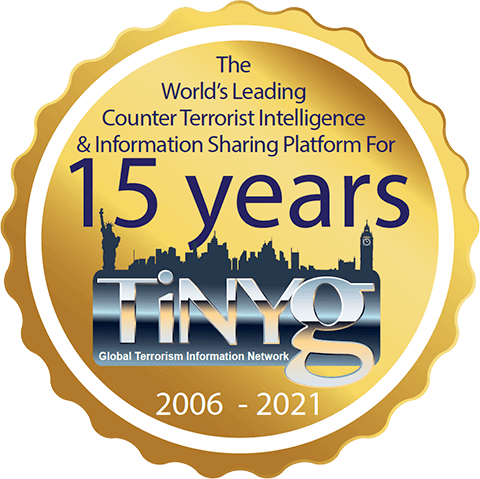Level 5 Award in Terrorism Awareness and Management
Preparing for the current and changing landscapes around the risks and threats around terrorism in our country are vitally important.
Whilst there is no requirement or legislation to apply a qualification, for those wishing to enhance current knowledge, capability and development, TINYg has developed this course and delivered it Internationally which provides a meaningful qualification. This initiative is endorsed by Buckingham University, and TiNYg bring this course independently to any other organisation whether public or private. Specifically designed and delivered to our members and is offered at a low-cost investment.
This course will be most useful to train front line staff, and managers, reporting issues to executive boards. Business might also recognise proportionate financial investment, and also the financial and psychological impacts on those who are not equipped, prepared or insured against this type of potential impact. It will also help identify where highly qualified professional such as risk audit professionals, blast mitigators, technology experts and those who provide services need to be engaged with and deployed.
The course will deliver a valuable component to enhancing your organisational knowledge.
Testimonial from a Risk Director who sent his staff on this course:
Staff members attended the Level 5 Terrorism Awareness and Management course provided by TINYg that was held online in early September.
The feedback we have received from staff has been very positive. The delivery from the presenter and the content of the course received excellent praise.
In addition, the way the course was spread over a week in 90 minute segments received positive comments as it gave enough time to deliver the content and not impact their working day.
Highly recommended."
Date: W/C 13th March 2023
Cost: 90 minutes a day for one week £499 + vat
All learners will be enrolled onto our course virtual learning environment after three consecutive days of attendance.
The learning portal includes: Online library; academic writing support guides; assignment briefs; announcements page and a discussion board
BOOK NOW
CLICK HERE TO REGISTERThe Course
OWNERSHIP & ENGAGEMENT
Terrorism Awareness and Management is not something that can be out-sourced to a single team or department. It is always based on embedded attitudes, values and protocols that are minimal in their impact on normal operating procedures, but give an organisation the sensitivity to be aware of the behaviour that could be an indicator of a potential attack at the earliest possible opportunity.
COMMUNICATION & INFORMATION EXCHANGE
Within the chaos of an actual or potential terrorist attack, the first question is not ‘What should we do?’, but ‘What is it that has just happened?’. The ability to gather information, create a structured understanding of the situation, and to share information across your networks (both internal and external), is one of the critical issues that effective preparation can significantly impact on.
EXECUTIVE TRAINING / EXERCISING / VALIDATION: A STRUCTURED PROCESS
Executive capability development is not something that happens by magic. It is the result of a well-structured training and exercising programme. It is almost never about teaching people to do something new, but is about giving them a framework in which they can make the necessary decisions at the necessary time, under the greatest stress they will ever face.
THE COURSE LEADS WITH FIVE SECTIONS COVERING:
1. Contemporary nature of terrorism – roots of terrorism; international terrorism and its evolution; case studies and typologies of method and motivation; People, Targets and Magnets; Laws, definitions and categorisation. Protect UK, Duty of Care legislation and ‘Martyn’s Law’.
2. Profiling, decision-making and motivations – complex challenges and findings around profile and demographics; profile and motivations prior to 9/11; contemporary profiling of psychosocial characteristics of perpetrators; Lone Wolves, Group Settings and in-betweeners
3. Securing the Attack Surface – securing buildings with case study; securing personnel with case study; cyber security and case studies; Convergence and integrating physical, information systems and personnel security and working through the ISO 27001 Annex of physical security environment security controls
4. Business Continuity Planning and Impacts – BCP guidance and planning; policies, processes and implementation; adding ‘people’ into the aligning BCP to holistic organisational resilience.
5. Responding and Recovery – Crisis Management; Crisis Communications; Incident Response including Information Systems; Risk Frameworks and framing ‘risk’ appetite; Threat Intelligence and the ‘Intelligence Cycle’.

